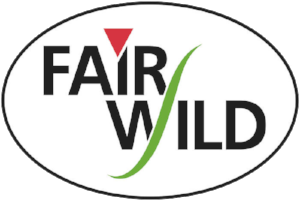FairWild features in training on Organic Wild collection in Armenia
Armenia, March 2017 - Organised by the Organic Agriculture Support Initiative (OASI), a training course on organic wild collection took place from 11th to 15th March in Armenia.
A series of workshops introduced good collection practices and fair trade principles for wild harvest, and made the participants familiar with the major elements of sustainable natural resource management. The FairWild Standard was one of the key documents used for the course.
Nature’s biodiversity is under threat worldwide: with increasing market demands natural resources are over used, and poverty is widespread among rural populations. In many countries of origin for wild ingredients, the legal and regulatory frameworks are not effective - or even not implemented at all - and there is little awareness for sustainable resource use practices.
Armenia has a rich natural biodiversity and a variety of ecosystems. Armenia's complex geological structure and location at the junction of major biogeographical zones have contributed to the evolution of its rich biodiversity. Despite its small area, the country is home to 3,600 species of vascular flowering plants and more than 17,500 animal species. The rate of endemism is very high: there are 125 endemic vascular plant species (over 3% of the floral diversity), and 339 endemic species of terrestrial fauna. Conservation and sustainable use of Armenia's natural resources is hence essential for sustainable development.
The recent training program’s key objective was to enhance the awareness of key stakeholders in the wild collection sector in Armenia – collection operations and service providers – of the benefits of integrating sustainable collection methods and fair trade business relations while targeting organic certification of their activities.
The WHO Good Agriculture and Collection Practices (GACP) and the FairWild Standard were the key documents on which the course was based. Training content was structured into five main sessions:
Global initiatives and legal framework
Good collection practices
Resource assessment and management
Post-harvest and primary processing
Social and fair trade principles
The workshops gave the participants the opportunity for intensive discussion of the local situation, challenges and potential solutions. Wild collection operations in Armenia are well aware of environmental, economic and social needs, and many have already begun to put good collection practices, internal collection rules, resource management activities and social initiatives in place.
In this regard, the training did not only enhance knowledge but was also an ideal platform for exchange of information and experience among the participating collection companies. They appreciated the framework provided by the sustainability principles of the FairWild Standard, which has already been translated into Armenian (PDF).
The OASI project is funded by the European Union and co-funded and implemented by the Austrian Development Agency. The main objective of the three-year program is to provide financial and technical assistance to Armenia's farmers, agribusinesses and cooperatives that are engaged in organic agriculture, and help create a clear and stable legislative framework in the country for organic production, meeting international standards. More information can be found here.

